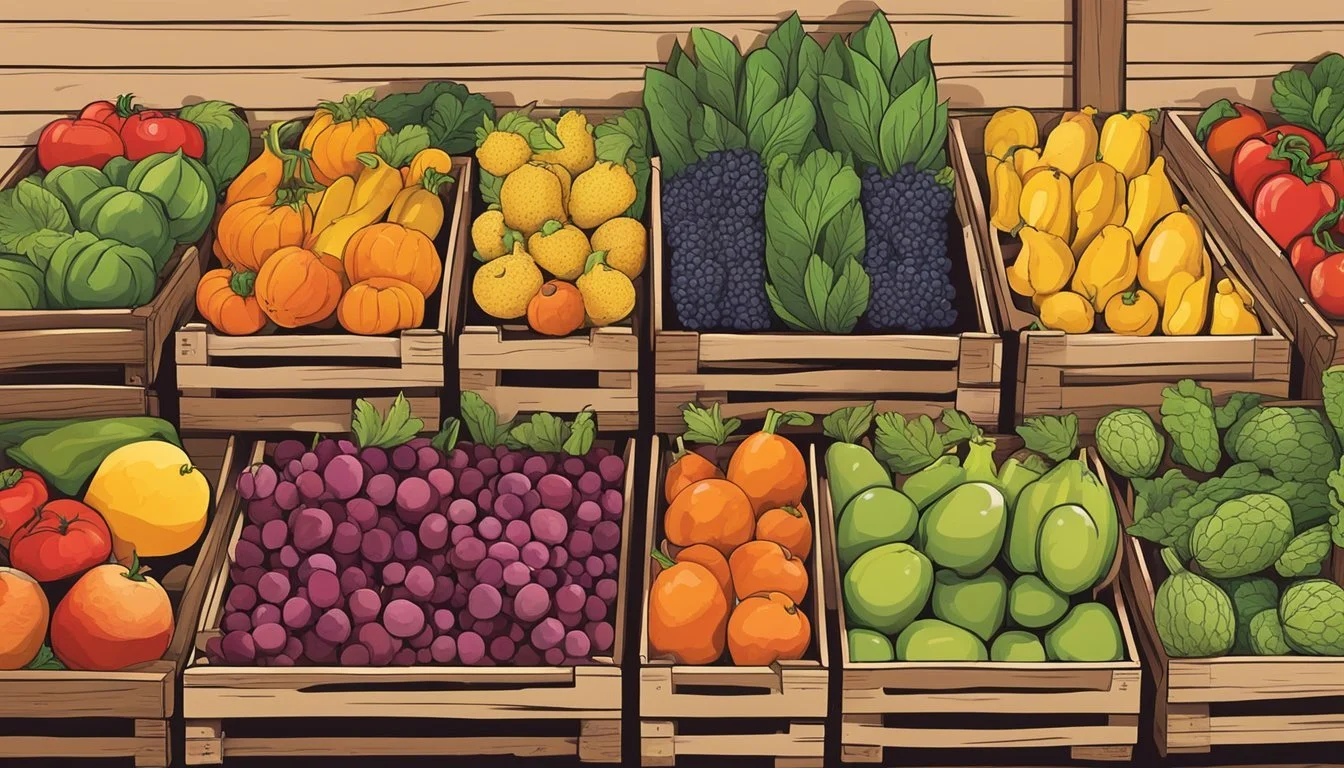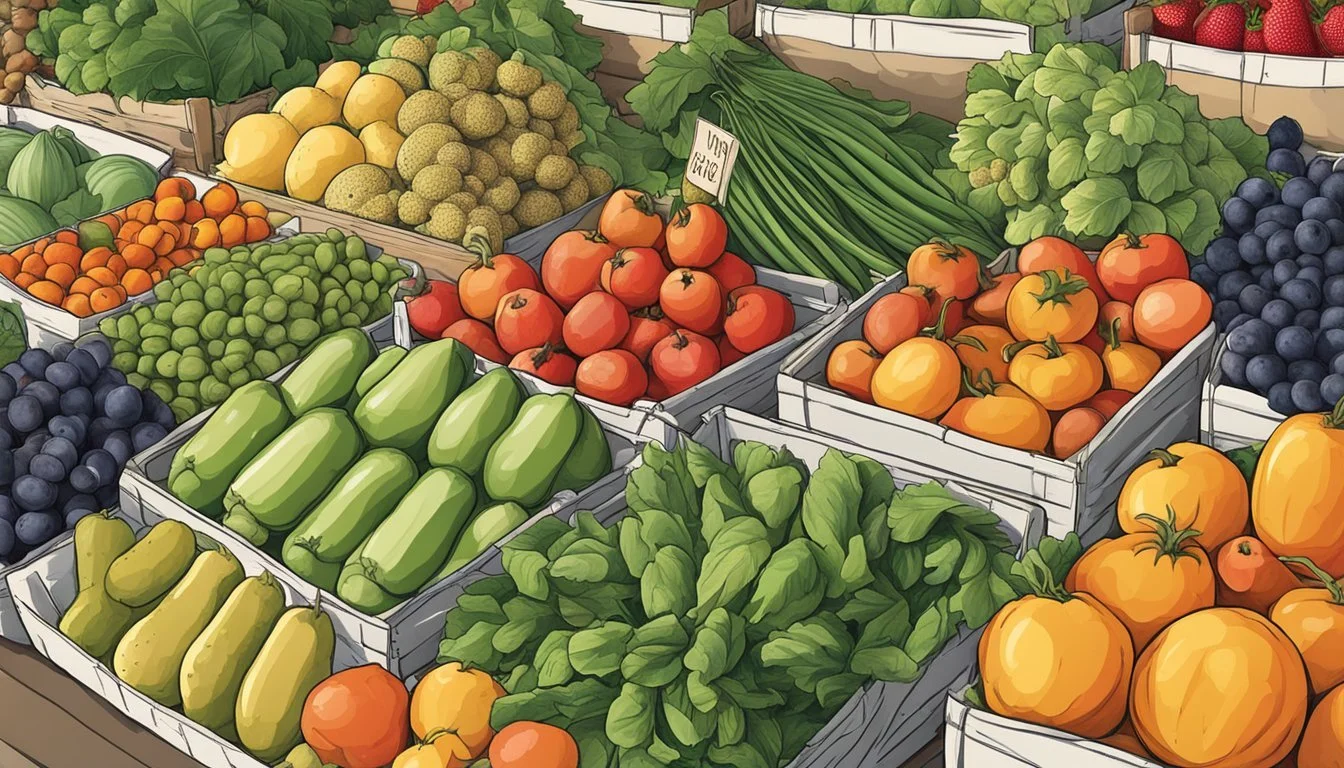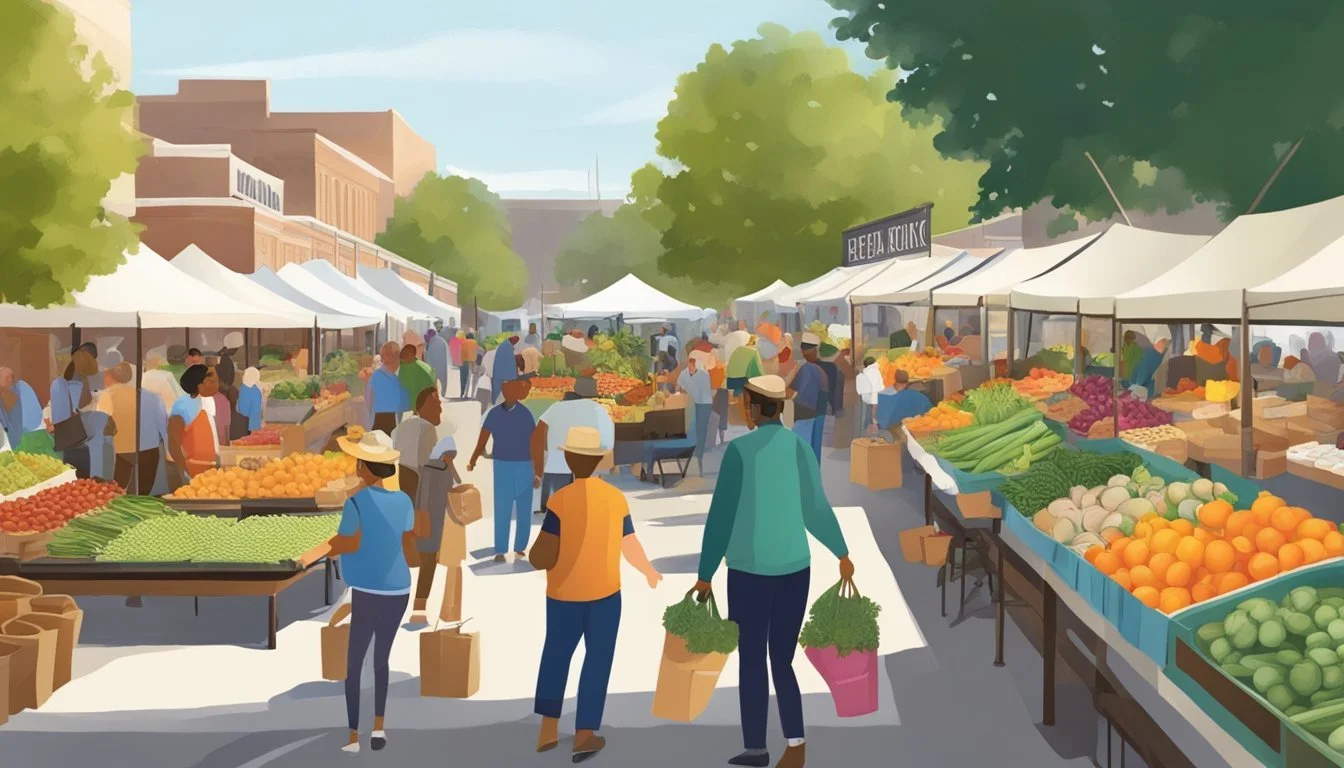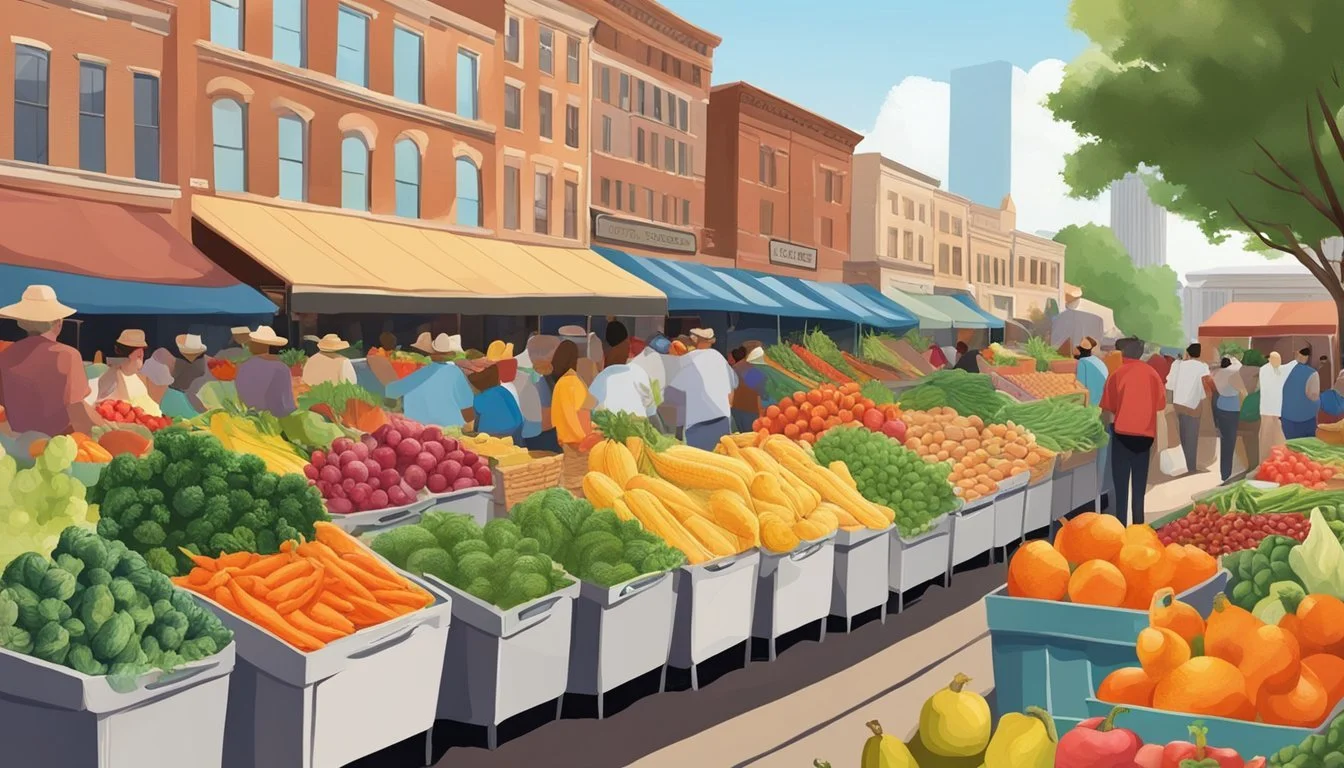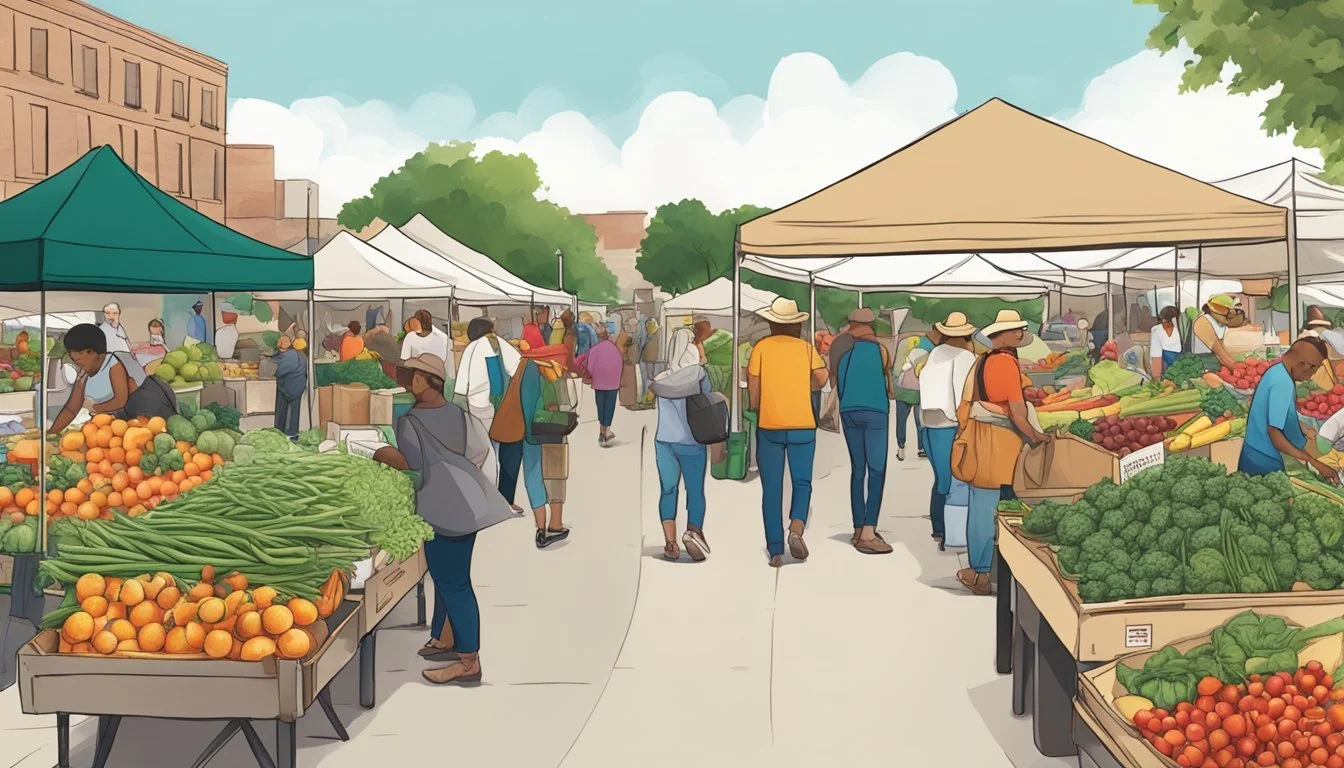Community Supported Agriculture (CSA) in Fort Worth, TX
A Guide to Local Farm Partnerships
Community Supported Agriculture (CSA) represents a unique relationship between local farmers and residents of Fort Worth, Texas—a relationship that fosters community involvement and supports the local economy. Through CSA programs, Fort Worth consumers can purchase shares from local farms, receiving regular allotments of fresh, seasonally grown produce and, in some cases, additional farm products. This model not only offers community members access to nutritious and fresh food, but it also provides farmers with a direct line of support from their market, enhancing their financial stability and ability to plan for the growing season.
The CSA model in Fort Worth is not a monolith; it encompasses an array of farms, each with its unique offerings. From urban farms tackling food security issues and empowering communities in Southeast Fort Worth to family-run establishments like Stevens Family Farm in nearby Alvarado, the CSA landscape is diverse. These farms typically provide a weekly or bi-weekly share of vegetables, with some expanding their selection to include eggs, meat, and other farm products, ensuring that Fort Worth residents have access to a wide range of fresh foods.
As Fort Worth continues to embrace the CSA model, the benefits extend beyond individual nutrition and satisfaction to the broader picture of sustainable agriculture. CSAs encourage environmentally friendly farming practices and reduce the carbon footprint associated with long-distance food transportation. By investing in local CSAs, Fort Worth locals are contributing to a robust, resilient local food system while enjoying the health and culinary benefits of fresh, locally sourced produce.
Understanding CSA in Fort Worth, TX
Community Supported Agriculture (CSA) is a significant component of the local food landscape in Fort Worth, Texas, offering a subscription-based model to connect consumers directly with farms. CSA members purchase shares from a local farm, effectively investing in the farm's production season. In return, they receive periodic allotments of fresh, typically seasonal produce and other farm products.
Subscription Benefits:
Freshness: Consumers enjoy some of the freshest, in-season produce available.
Community Impact: Purchasing CSA shares supports local farmers financially and fosters a sense of community.
CSA Structure in Fort Worth:
Subscription Aspect Description Share Options Seasonal produce, eggs, meat, etc. Distribution Weekly or bi-weekly pickup/delivery Farm Interaction Opportunities for on-farm events and more
Local farms around Fort Worth have tailored their CSA programs to meet the needs of the community while promoting sustainable agriculture practices. Consumers can choose from a variety of CSA offerings, such as fresh eggs and meats, in addition to fruit and vegetables.
Community Role: Local CSAs also play a pivotal role in combatting food deserts by increasing access to healthy food options, particularly in urban areas of Southeast Fort Worth. Additionally, they empower communities through engagement and education about food sources and sustainable practices.
In summary, CSA in Fort Worth melds consumer needs with agricultural traditions, backing a sustainable, community-driven approach to local food procurement and consumption.
Benefits of Joining a CSA
Joining a Community Supported Agriculture (CSA) in Fort Worth, TX, offers direct benefits ranging from nurturing local agriculture to nutritional advantages and a reduced environmental impact.
Support for Local Farms
By participating in a CSA, members invest in local farmers and sustainable agriculture. This model provides farmers with much-needed upfront capital to cover the initial costs of planting and maintaining crops. The community's commitment also secures a reliable market for a farm's produce, including fresh vegetables, meat, and eggs, which contributes to the financial stability and growth of local farms.
Health and Nutritional Advantages
CSA members gain access to organic, non-GMO, and nutrient-dense foods. Since the food is harvested locally, it tends to be fresher than produce found in supermarkets that has traveled long distances. This freshness not only contributes to better taste but can also preserve a higher level of nutrients, supporting the health of the community.
Environmental Impact
CSA systems help to reduce the carbon footprint associated with long-distance food transport. The focus on sustainable farming practices within CSAs often means a smaller ecological footprint, fostering sustainable and organic agriculture. In effect, CSAs play a role in supporting environmentally conscious food choices and contributing to a healthier planet.
How CSA Works in Fort Worth
In Fort Worth, Texas, CSA programs provide consumers with direct access to high-quality, locally sourced produce and other farm products. These programs are built on a foundational commitment between local farmers and community members.
Membership and Subscription Models
CSA memberships in Fort Worth often operate on a subscription basis, where individuals or families sign up for a season. The typical duration of a CSA season can range from the mid-June to mid-October, reflecting the area's growing cycle. Subscribers pay upfront for the period, which in turn supports the local CSA farms to meet the demand for their crops. By committing to a membership, CSA members receive a share of vegetables, fruits, meats, and eggs, depending on the farm’s offerings.
Typical CSA Offerings
Subscribed members can expect a variety of offerings in their CSA shares. Local and organic vegetables and fruits are standard, while some CSAs in the Fort Worth area also include pastured eggs, free-range chickens, and grass-fed beef. The exact contents of a CSA box are usually dependent on seasonal produce availability and the farm's specific range of products. Urban farms within the region combat food deserts by offering access to such fresh, nutritious food.
Distribution and Pickup Locations
Fort Worth CSA subscribers typically obtain their shares through designated distribution sites or pickup locations. These could range from farmers markets to local farm stands, or even direct delivery in some instances. Urban farms and community gardens may also offer convenient pickup points, thereby promoting ease of access for all CSA members. CSA farms work to reach out to various members of the community, including those depending on SNAP benefits, ensuring broad and inclusive participation in the program.
Local CSA Farms and Markets
Fort Worth, Texas, is a thriving hub for Community Supported Agriculture (CSA) and farmers markets, offering residents access to fresh, local produce directly from the source.
Spotlight on Fort Worth CSA Farms
Stevens Family Farm in Alvarado, a mere 16.77 miles from Fort Worth, provides an array of fresh products. Patrons can expect to find fresh eggs, various meats, and more, catering to communities within Mansfield and Burleson as well as the larger DFW Metroplex. Their assortment includes chickens, ducks, turkeys, geese, and pigs ensuring a diverse selection for consumers.
Another notable CSA provider is Walnut Creek Farm, known for its commitment to sustainable farming practices and providing organic produce to the residents of Fort Worth.
Local CSAs often offer subscriptions or "shares" that community members can purchase. In return, they receive regular deliveries or pickups of seasonal produce, thereby supporting the local agriculture directly.
Exploring Farmers Markets in DFW
The Clearfork Farmers Market showcases local artisans and farmers, featuring a vibrant selection of products ranging from organic produce to handcrafted goods. Situated in the heart of Fort Worth, the market is a gathering place for locals seeking to support their community's farmers and artisans.
Mansfield and Aledo host their farmers markets, known for their welcoming atmosphere and the wide variety of local produce available. The Acton Farmers Market and Burleson Farmers Market further contribute to the rich tapestry of fresh, locally-sourced food, ensuring that residents of the DFW Metroplex have access to some of the best products Texas has to offer.
Choosing the Right CSA for You
When selecting a Community Supported Agriculture program in Fort Worth, Texas, individuals should evaluate the types of CSA programs available and the various considerations for membership to ensure they meet their specific preferences and needs.
Types of CSA Programs in Fort Worth
Fort Worth features a range of CSA programs, each offering different products that can include veggie boxes, fruit assortments, all-natural farm products, and more. Members can typically choose from standard packages or custom options that may offer microgreens, specialty greens, and herbs. Some farms emphasize the flavor and relationship with customers by providing high-quality, fresh produce directly from their local environments.
Standard Share: A pre-determined selection of seasonal produce offered regularly to members.
Custom Share: Allows members to customize their box according to their preference, sometimes including products like eggs or meat.
Market Share: Members can use their membership as credit at the farm's market stand.
Considerations for CSA Membership
Before becoming a CSA member, customers should consider several key points:
Duration and Seasonality: Membership often requires a commitment for the season. Customers should assess the time frame and the types of produce available during those periods.
Pick-up or Delivery: Some CSAs offer delivery services directly to the customer's doorstep, while others require a pick-up at a designated location or the farm itself.
Cost and Investment: Membership might involve upfront costs, payment plans, or even a work-trade arrangement. Potential members should consider their budget and the value they place on supporting local agriculture.
Support and Sustainability: Membership is more than just a transaction—it's an investment in a farm's future and the local economy. Prospective members should align with the CSA's approach to community and sustainable farming practices.
Supporting Diverse Agricultural Practices
In Fort Worth, Texas, the adoption of varied agricultural methods is crucial for ensuring a sustainable future in farming. These practices not only promote environmental health but also offer consumers access to high-quality, locally grown food.
Permaculture and Organic Farming
Permaculture in Fort Worth emphasizes the creation of agricultural ecosystems intended to be sustainable and self-sufficient. It features techniques that mirror natural processes, resulting in minimal waste. Organic farming is an integral component, focusing on soil health and avoiding synthetic pesticides and fertilizers. Farms practicing organic methods contribute to sustainable agriculture by producing a diverse range of crops, including locally grown herbs, vegetables, and fruits that are free from harmful chemicals.
Livestock and Pasture Management
Livestock and pasture management align with the principles of sustainable farming. In the Fort Worth area, meat and egg production plays a significant role. Practices such as pastured poultry farming prioritize the welfare of animals by granting chickens access to fresh pastures, resulting in soy-free raised chickens. Similarly, grass-fed beef programs ensure that cattle graze on grass their entire lives, promoting healthier grass-fed meat products. Farms like Romantic Heritage Farms exemplify these approaches, pairing ethical livestock care with sustainable agriculture practices.
Extended Impact of CSA Participation
Community Supported Agriculture (CSA) in Fort Worth, TX, has seen increased participation, enhancing not only local food security but also strengthening the fabric of community connections. This participation brings with it a multitude of benefits beyond fresh produce, touching economic stability and social integration.
Building Community Relationships
CSA programs in Fort Worth facilitate robust relationships between members and farmers. Members receive regular shares of the harvest, experiencing the seasonality and diversity of local produce firsthand. This engagement fosters a sense of community as members often meet during pick-up events, fostering ties and encouraging a collective responsibility for local food systems.
Member Engagement: Through regular interactions, CSA members build personal connections with their food providers, often resulting in an educational exchange about sustainable farming practices.
Community Events: Many CSAs host events such as potlucks, workshops, and farm tours, which fortify community bonds and engender trust between consumers and growers.
Economic and Social Considerations
CSA memberships have a direct impact on the local economy. By providing a dependable customer base through subscription fees, members create a more predictable demand, aiding farmers in their financial and marketing plans. This economic model alleviates some of the risks inherent in farming, allowing producers to focus on quality and sustainable practices.
Stable Demand: Pre-season membership fees offer farmers stability, enabling better planning and resource allocation.
Benefits for Farmers Benefits for Members Demand Assured market for produce Access to fresh, local foods Marketing Reduced marketing costs Learning opportunities on food sources Economic Improved cash flow for farm operations Supports local economy and agriculture
Socially, CSAs contribute to a more connected and health-conscious citizenship. As members invest in local agriculture, they also become ambassadors of a sustainable lifestyle, influencing the broader community to value and support local food systems.
Social Influence: A CSA member's lifestyle can influence peers, leading to a wider community understanding of the importance of sustainable practices.
Future of CSA in Fort Worth
Community Supported Agriculture (CSA) in Fort Worth is poised to expand amid growing demand for locally-grown produce and an increased focus on sustainable farming. CSA models continue to provide vital support for area farms while fostering an engaged community around food security and agricultural awareness.
Trends and Growth Opportunities
Trends: Fort Worth's agricultural landscape is witnessing a steady increase in CSA farms. The trend suggests an inclination towards fresh, in-season produce and a desire to invest directly in local agriculture. Rising consumer awareness and participation in CSA indicate substantial growth potential.
Local Food Movement: The convergence of consumer interest in local food sources and environmental sustainability supports the proliferation of CSA programs.
Technology Integration: Leveraging online platforms for subscriptions and social media for community engagement are key opportunities that could drive the future growth of CSA in the region.
Growth Opportunities:
Encouraging urban farming initiatives to combat food deserts, as seen in Southeast Fort Worth, signifies an untapped potential for integrating CSA into urban settings.
Building partnerships with schools and businesses can effectively expand CSA's reach and impact.
Challenges and Adaptations
Challenges: While CSA's future in Fort Worth is promising, the sector faces challenges ranging from extreme weather conditions to economic factors affecting both supply and demand.
Weather Volatility: CSA farms must navigate the uncertainties of weather, which can be a significant destabilizing factor for crop yields.
Economic Pressures: Balancing affordability with the economic viability of farms continues to be a complex challenge.
Adaptations:
Adopting resilient and sustainable farming techniques to withstand adverse weather, such as drought-tolerant crop varieties, can help secure CSA's future.
Creating flexible CSA models, such as customizable share boxes and payment plans, could reduce economic barriers for consumers while supporting the financial sustainability of CSA farms.
CSA in Fort Worth demonstrates strength through its adaptability and community-oriented approach, which are vital for addressing the challenges ahead and seizing the growth opportunities presented by the current trends.



